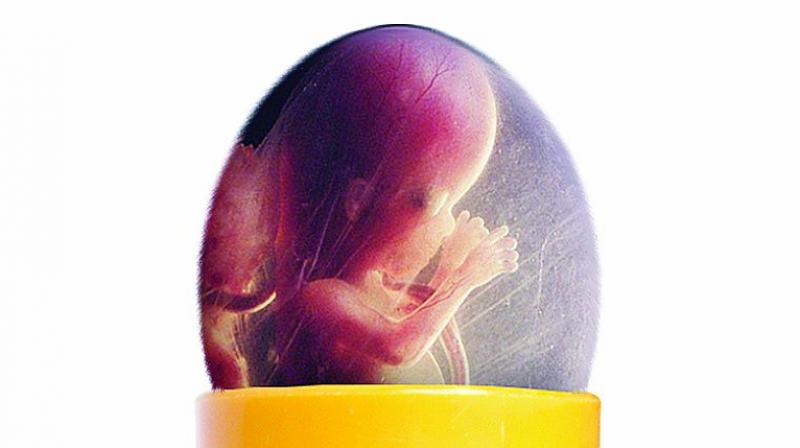Egg freezing: Motherhood rescheduled

Hyderabad: Young urban women who want to put off having a baby to 40 or beyond are choosing a route that modern technology has provided: freezing eggs for several years, until they are ready to have a child. Among those opting to do so are IT professionals, airline employees and mid-level managers who are around the age of 30 and at a crucial stage in their careers.
Generally, they come to clinics after reading about the system on websites. Explained Dr Sahil Gupta, an infertility specialist: “Very few centres are doing this. We are seeing two to five cases a month. The number would see a rise with more women being in the workforce and many of them opting for higher-level jobs. There are also unmarried women who want to preserve their eggs and use them at a later stage in life.”
The eggs are removed by IVF procedure and they are stored at -196 degrees. So, there is no deterioration in the quality of eggs with time. Eggs are frozen for eight to 10 years and this can be done for a longer period also. Are the eggs of good quality? Dr Duru Shah, senior gynaecologist explained, “We insist that cryopreservation must be done before age 30. The quality of eggs before this age is good. Between 30 and 35, the eggs will not be so good; and after 35, the quality deteriorates. Hence, to ensure a healthy baby later, women are counselled to store their eggs early.”
In some women, it has been found that the quality of eggs at age 26 is also not good. Experts state that 5 to 10 per cent of women are infertile. This percentage has remained more or less the same over the years. A senior gynaecologist on condition of anonymity explained, “There are women whose IVF cycle has constantly failed as the quality of eggs is very bad. Preserving such eggs does not help. An experienced embryologist is able to evaluate the quality of eggs. Accordingly, the patients have to be informed. There are cases where a woman is not informed when her eggs are preserved. After the first IVF cycle fails, there are stored eggs in the laboratory to be used, but the couple is not aware of the same.”
In a recent case in Mumbai, a woman was constantly upset with the looks of her child and insisted on knowing from the doctor whether the baby was from the couple’s egg or sperm. The doctor and their team had a hard time explaining matters. They pointed out to her that her eggs were too bad. Her husband wanted a child and he had agreed to use donor eggs. Incidents like this are often heard. There is no law in place to take action or register a complaint. Complaints are often brushed under the carpet.
Not all frozen eggs are success stories. Failure rates are high too according to documentary evidence collected by the American Society for Reproductive Medicine in 2013. Data showed that safety, efficacy, cost-effectiveness and emotional risks of elective cryopreservation were insufficient to recommend this system. The procedure could be used in a medical condition only.
The medical condition of a woman suffering from cancer and wanting to preserve her eggs before the treatment is accepted. While the technique is no longer experimental in nature, it can be used to simplify egg donation. But, marketing this technology to defer childbearing may give women the false hope, whereas the success of the process is not guaranteed.
But there’s no regulation in place yet:
There is no proper law in place governing egg freezing procedures in the country. Hence, if donor eggs are used in IVF procedures, only the embryologist and the infertility specialist are aware of the changes effected in the laboratory. A senior infertility specialist on condition of anonymity explained, “A good embryologist has to not only maintain ethical standards but also confide to the couple in case the sperms and eggs are not of good quality. But, there are often commercial interests driving these cases and these are giving a bad name to the procedures.”
Lack of proper law to govern scientific advances often leaves patients in the lurch in case of wrongdoing. The Indian Council of Medical Research insists that ethical methods must be followed and the couple must be aware in case donor egg or donor sperm is used. In most cases, either one partner or both are not aware of the switch. It’s only a suspicious couple who would undergo a DNA test to verify their parent age.
The Assisted Reproductive Techniques Regulation Bill is ready for the last nine years but it has still not been approved. The bill will regulate establishments like infertility clinics, sperm and egg banks and check on these unethical practices of transferring eggs without consent. A senior gynaecologist explained, “Till the bill is passed, regulation is going to be difficult. After that, a lot of clinics will disappear as they are not practising as per the guidelines set by ICMR.”

